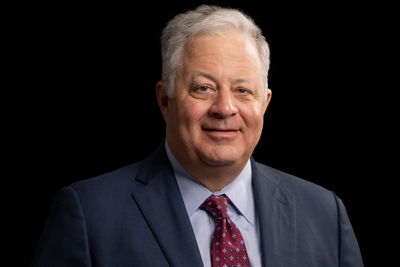
Michael Waguespack
Tens of millions of dollars from opioid settlement agreements are flowing to parishes and sheriff’s offices with only limited oversight and accountability, according to a report from Louisiana’s legislative auditor.
The Louisiana Opioid Abatement Taskforce (LaOATF), the state’s advisory body for the legal settlement funds, reports that $98.5 million in opioid settlement funds have been provided to parishes and sheriffs as of September 2024, with the taskforce administration receiving about $3.7 million and $17.5 million set aside for a fund that compensates attorneys who helped to obtain the settlement funds for local governments.
But much of the money remains unspent, according to the report published this month by Legislative Auditor Michael Waguespack. As of September, nine parishes and 19 sheriffs have not spent any of their allotted funds, the audit found. Only $8.6 million has been spent by the local agencies, with much of it used for opioid treatment and recovery, as well as training, research and planning by first-responders, according to the report.
“Parishes and sheriffs have encountered barriers to spending opioid settlement funds such as a lack of staff and a lack of programs and services in their area,” a report summary states, adding that the agencies want more guidance from LaOATF about the best ways to use the funds.
Another issue is that the memorandum of understanding (MOU) governing the use of the funds in Louisiana mandates that parishes submit an annual report with the taskforce detailing expenditures, but sheriffs do not have the same requirement, according to the report.
Meanwhile, less than 68% of the expenditure reports that were due last year have been submitted to LaOATF, the report says.
The first opioid settlements were reached with companies that manufactured, marketed or dispensed the pain-relief pills in 2021, and Louisiana has taken part in 15 such settlements, according to the report. Between 2019 and 2023, 5,256 opioid-overdose deaths were recorded in the state, reflecting past declarations that the opioid epidemic had become a national public health emergency, the audit said.
Attorneys representing the state’s Opioid Abatement Administration Corp.said the auditor’s report shows big-picture aspects of how settlement funds are being used.
“The report really allows people to see how it's working and how it can work better,” Vic Franckiewicz Jr., the corporation’s outside counsel, said, adding that it also provides a look at what other states are doing with their opioid settlement funds.
“There is already full accountability for this money,” Curtis Nelson, executive counsel for the corporation, told the Louisiana Record. Nelson said cooperative endeavor agreements between the corporation and local agencies require that the funds be used as intended. If that doesn’t occur, the agencies risk losing funding in future years, he said.
The attorneys stressed that the funds flowing to local agencies in past years had not been predictable amid continuing settlement proceedings with manufacturers and marketers. In turn, it has not been easy for local agencies to plan ahead for the use of those funds, the\y said.
Parishes and sheriffs are expected to receive a $600 million share of these funds from 2022 to 2038.
A spokeswoman for the Louisiana Department of Health said that in the wake of a recent taskforce meeting, the department has been moving to provide advice on how local agencies can invest the money effectively in prevention and treatment initiatives.
“The department is in the process of developing this guidance, but will focus on 1) accessible and effective ways to support overdose prevention and SUD (substance use disorder) treatment, such as naloxone distribution and access to medications for opioid use disorder like suboxone, and 2) how the department can better coordinate with sheriffs and parishes …” Emma Herrock, the department’s communications director, told the Record in an email.
Among the department’s initiatives will be assuring better health care transitions for inmates who are about to be released and the reduction of maternal overdose deaths in the state, Herrock said.
LaOATF has agreed to all of the auditor’s recommendations to ensure added accountability of the settlement funds. The recommendations include coordination between the taskforce and attorney general to ensure settlement agreement rules are followed, giving LaOATF more authority to ensure local agencies are complying with the MOU, getting information from public health professionals and those who have lived with opioid addiction to determine how to best use the funds, and amending the MOU to mandate that sheriffs file yearly expenditure reports.
But amending the MOU can be difficult since scores of local government agencies nationwide and state governments were involved in the settlements.
“It’s an idea that has a lot of merit but is difficult to implement in practice,” Franckiewicz said.




